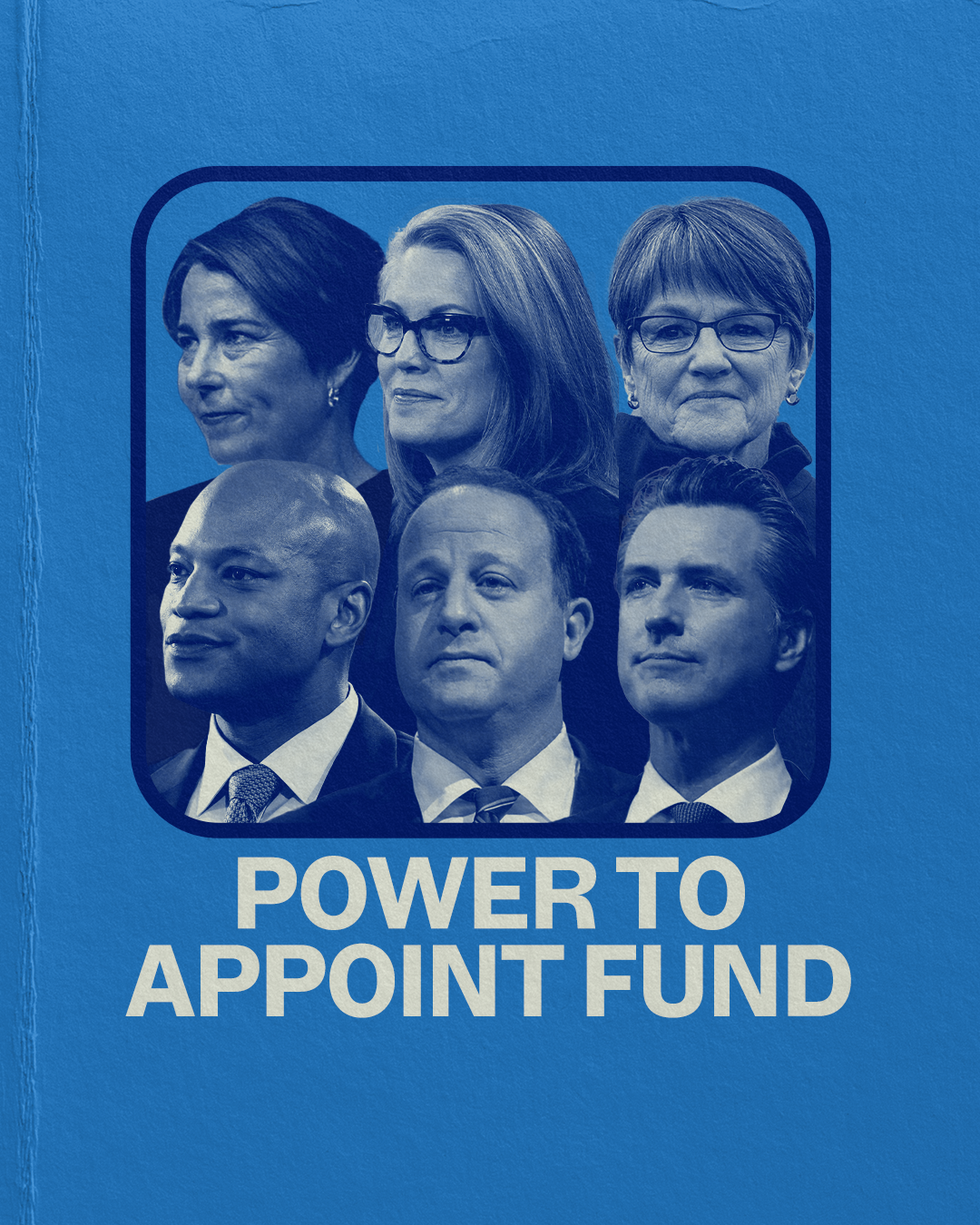
Can you donate now to join our fight?
We just launched the Power to Appoint Fund to highlight the important role Dem Govs play to ensure integrity in our country’s judicial process and protect fundamental freedoms. Your support will ensure we can make crucial investments in key states and protect our democracy. Please don’t wait: rush your gift to elect Democratic governors! >>>
ICYMI: Whitmer Playbook Shows How Democrats Win Michigan In 2020
Whitmer: Voters want “solutions not positions”
In case you missed it, The Washington Post’s Karen Tumulty profiled Michigan Gov. Gretchen Whitmer’s decisive victory in 2018 and asked what lessons 2020 Democratic presidential candidates can draw from her victory in this critical swing state.
Gov. Whitmer discusses how her laser-like focus on kitchen table issues, including infrastructure and education, fueled her victory. The DGA’s historic 2018 cycle proved this roadmap to be incredibly successful.
Read more about “The Whitmer Playbook” and how 2020 Democrats can win this crucial swing state:
Washington Post: Democrats will have a better chance if they take a page from Michigan’s Gretchen Whitmer
It is not by happenstance that this week’s Democratic presidential debates are being held in Detroit.
There were plenty of surprises on the earthshaking election night of 2016 but few as big as Donald Trump’s squeaker of a victory in Michigan. No Republican presidential contender had won the state since 1988, and Democrats in the years since had become so confident there that they counted Michigan as part of their “blue wall.”
Though Trump had lagged behind Democratic nominee Hillary Clinton in polling, he worked hard in Michigan. Two forces tipped him over the top: that much-analyzed surge of support among working-class whites in small towns and rural areas across the Midwest, coupled with the fact that Michigan saw the sharpest drop-off of African American voters in the country. Black turnout was estimated to be more than 12 percentage points lower than it had been four years earlier, when President Barack Obama was running for a second term.
With Trump winning by a popular-vote margin of 0.2 percentage points (which was fewer than 11,000 votes), Michigan’s turned out to be the closest contest in the country.
The 2018 midterm elections have given Democrats ample reason to hope they can put the state and its 16 electoral votes back in their column. But their chances to do so will be better if they take a page from the playbook of Michigan’s new governor, Gretchen Whitmer.
A former state Senate minority leader who began her 2018 race with little name recognition beyond her Lansing base, Whitmer ran a disciplined and focused campaign. In the Democratic primary, she positioned herself as the most moderate candidate. That included rejecting the Medicare-for-all proposals touted by her more liberal opponents, one of whom was endorsed by both Sen. Bernie Sanders (I-Vt.) and soon-to-be-Rep. Alexandria Ocasio-Cortez (D-N.Y.).
She rarely mentioned the president and hammered instead on issues that shape daily life closer to home. Her salty campaign slogan was: “Fix the damn roads.” In November, Whitmer easily beat Republican Attorney General Bill Schuette, who wrapped himself in Trump’s endorsement.
Whitmer does not plan to make an endorsement anytime soon. But she told me that she has had conversations with at least eight of the presidential contenders and is counseling them to do what she did.
“I stayed focused on things like fixing the roads, education, ensuring our kids are prepared to have the skills they need and connecting adults with good-paying jobs through skills opportunities as well. And water — cleaning up the drinking water, protecting the Great Lakes,” Whitmer said. “These are our true fundamentals that, I think, resonate not just with Democrats but with voters across the state. They want solutions, not positions.”
Voters in her state are less concerned with the topics that obsess Washington and social media, Whitmer says. She hears little discussion of whether Trump should be impeached. Nor are ordinary Michiganders “spending a lot of energy” on the president’s tweets, including the racist ones that recently targeted one of their own, Rep. Rashida Tlaib, along with three other nonwhite Democratic congresswomen.
The governor also advises the presidential contenders to avoid debate-stage trapdoors, including being asked to answer questions about complex subjects by raising their hands. (CNN has promised there will be no such moments this week.)
In the second night of the first debate, the NBC moderators asked candidates to lift their hands if their health plans would cover undocumented immigrants. The next day’s cover of the New York Post showed five of them with their right arms up, over the headline: “Who wants to lose the election?”
That kind of question produces a dramatic visual effect but “really does a disservice to the candidates, as well as the public,” the governor said. “I think it’s the nature of such a packed field and vying for precious coverage, and that it’s just a part of the environment that we’re living in. But ultimately, at the end of the day, people want leaders who they respect and who they believe in and who can get things done.”
Whitmer added: “That doesn’t come from raising your hand to a question. It doesn’t come from feeding into the current issue of the moment, because there will be a new issue next week and a new one the week after. It comes from really staying on the things that improve people’s lives. It’s hard to do, but a disciplined candidate who really has thoughtful solutions and a plan to execute on them, I think, is ultimately the kind of person that’s going to resonate.”
None of that may sizzle on a debate stage, but it may be the best way not to get burned in the long run.

